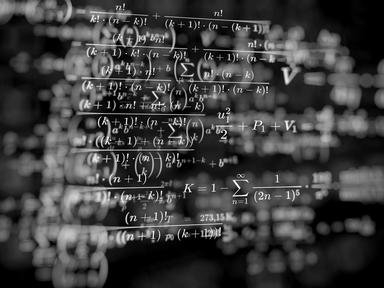Quiz Answer Key and Fun Facts
1. I am the smallest positive integer that can be divided completely by 2, 4, 6, 8 and 10. What number am I?
2. I am the sum of the smallest two-digit prime number and the greatest two-digit square number. What number am I?
3. The smallest three-digit palindromic square number is 121. I am the second smallest number with such properties. My first digit is 4 and the sum of all my three digits is 16. What number am I?
4. The sum of my two digits is the same as the product of my two digits. I am a multiple of 11. What number am I?
5. The numbers 4 and 6 are the first two numbers that are the averages (or the means) of two consecutive prime numbers that differ by 2. I am the third number that has the same properties. What number am I?
6. I am the smallest square number that is the sum of two different positive cube numbers. What number am I?
7. I am the remainder of a! / b!, where a and b are any positive integers with a > b. Here, a! means a factorial. What number am I?
8. The smallest number that is neither prime nor even is 1. I am the second number with these properties. What number am I?
9. The first four Fibonacci numbers that are also prime are 2, 3, 5 and 13. I am the next prime Fibonacci number. What number am I?
10. I am the smallest positive integer that has the following properties. When I am divided by 2, the remainder is 1. When I am divided by 3, the remainder is 2. When I am divided by 4, the remainder is 3. What number am I?
Source: Author
Matthew_07
This quiz was reviewed by FunTrivia editor
crisw before going online.
Any errors found in FunTrivia content are routinely corrected through our feedback system.

